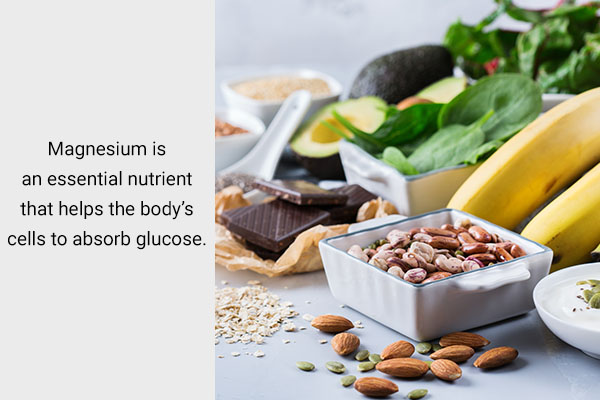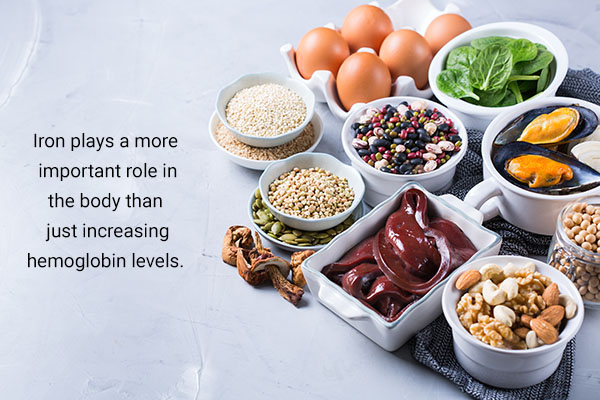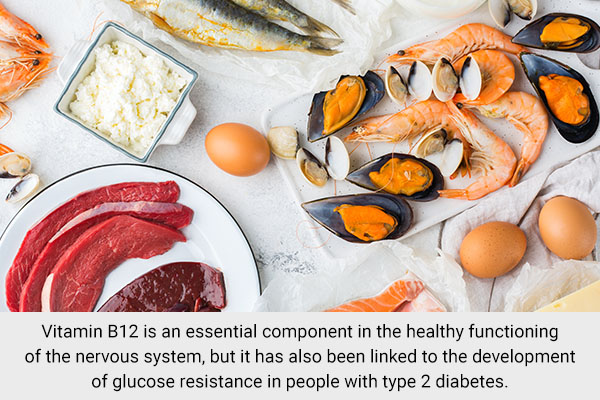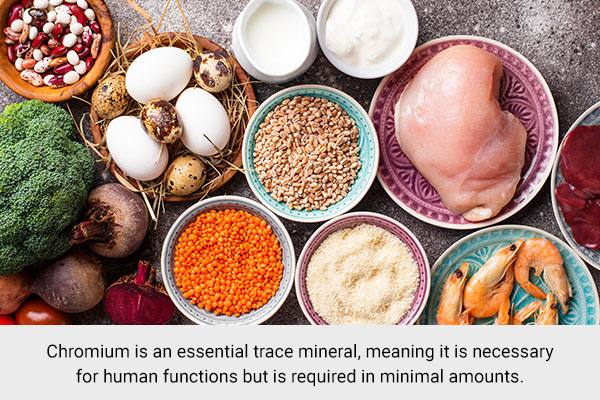In this article:
Have you ever experienced the desire to eat something sweet after a meal, after waking, or when you feel low and dull? You are not alone.

According to experts, cravings are ways the body responds to stress through a pathway in the brain. Studies have found cravings for sweets to be the highest, especially in people with binge eating disorders. (1)
It is very important to address these sugar cravings as ample evidence suggests excessive sugar consumption can cause obesity, which leads to an increased risk of other chronic illnesses. (2)
Why Sugar Cravings Occur
Sugar and sweet foods are a source of glucose, which is the most readily used form of fuel that the body utilizes to produce energy. Sugar-rich foods are digested and absorbed by the body quickly. (3)
There are several reasons why sugar cravings occur: (4)
- Long-term calorie restriction – when the body is trying to fulfill its nutrient and energy requirements
- During pregnancy – when the body’s caloric requirements increase
- Hormonal changes – such as menopause or during the menstrual cycle
- Nutrients deficiencies that cause changes in sugar metabolism and affect insulin activity
Of all the reasons, nutrient deficiencies are of great concern, as the cravings will not go away until the deficiency is restored.
This article will explore the nutrient deficiencies that can lead to intense sugar cravings.
Nutrients Worth Paying Attention To
If you have prolonged sugar cravings that don’t go away, you may want to look into these nutrients.
1. Magnesium

Magnesium is an essential nutrient that helps the body’s cells to absorb glucose. When the cells utilize this glucose, they are satisfied and do not drive cravings.
In the absence of magnesium, the cells receive no glucose, resulting in an increased craving. (5) For this reason, magnesium is a highly studied supplement for its role in type 2 diabetes.
Several studies have shown that supplementing with magnesium was useful in improving the activity of insulin as well as increasing the uptake of glucose in order to reduce the amount of free blood sugar. (5)(6)
Foods to eat to combat magnesium deficiency
The daily requirement of magnesium for an adult is 400 mg for men and 350 mg for women. Food sources that contain magnesium include pumpkin seeds, almonds, boiled spinach, cooked black beans, potato with skin, kidney beans, fortified cereals, and milk. (7)
2. Iron

Iron plays a more important role in the body than just increasing hemoglobin levels. Iron is also used to produce energy in the cells as part of essential enzymes. (8)
It has also been reported that iron deficiency can alter the balance of glucose in the body causing a rise in blood sugar levels, which increases the complications in people with type 2 diabetes. (9)
Therefore, iron deficiency makes you feel tired, which increases sugar cravings.
Foods to eat to combat iron deficiency
The recommended daily intake of iron is 11 mg for men and 15–18 mg for women. You can include oysters, organ meats, beans, lentils, spinach, dark chocolate, meat, and fortified cereals in your diet to fulfill your iron requirement. (10)
3. Vitamin B12

Vitamin B12 is an essential component in the healthy functioning of the nervous system, but it has also been linked to the development of glucose resistance in people with type 2 diabetes.
Studies have found that supplementing with vitamin B12 can help drive glucose into the cells and reduce insulin resistance, which can be an effective way to reduce sugar cravings. (11)
Though there are no direct studies linking vitamin B12 deficiency to sugar cravings, its role in glucose metabolism is suggestive of such an effect.
Foods to eat to combat vitamin B12 deficiency
The recommended daily intake of vitamin B12 is 2.4 mcg for both men and women. Some rich sources of vitamin B12 include organ meats, salmon, tuna, nutritional yeast, and fortified cereals. (12)
4. Chromium

Chromium is an essential trace mineral, meaning it is necessary for human functions but is required in minimal amounts. (13)
One of its essential roles is chromium’s ability to increase the uptake of glucose by the cells. This prevents the rise of blood sugar levels and improves the outcomes of type 2 diabetes. (14)
When the body’s cells don’t receive glucose, the body craves sugar. Studies have proven chromium supplementation to reduce blood sugar spikes, which can work well to reduce sugar cravings as well. (15)
Foods to eat to combat chromium deficiency
The recommended daily intake of chromium is 35 mcg for men and 25 mcg for women. Since chromium is a trace mineral, you can easily develop its deficiency. For this reason, it is important to eat foods rich in chromium.
Include whole grains, meat, fruits, and vegetables in your diet. (16) Alternately, you can take chromium supplements after discussing them with your doctor.
What Can I Eat When I Crave Sugar?
The best snack option is berries or whole fruits. They provide not only fructose but also essential nutrients whose deficiency may be contributing to sugar cravings. You can also snack on nuts and dark chocolate.
Practical Takeaways
- Sugar cravings are the body’s desire to consume calorie-rich, specifically sugar-rich, foods.
- They usually occur when your cells do not receive enough glucose, which is the easiest and most readily available form of energy.
- The deficiency of some nutrients may cause the cells to receive less glucose, which not only makes the body feel as if it isn’t receiving enough fuel as food but also causes blood sugar levels to increase, which is a severe complication for people with diabetes.
- These nutrients include magnesium, iron, vitamin B12, and chromium. Eating foods high in these nutrients or taking their supplements can help reduce sugar cravings.
- Was this article helpful?
- YES, THANKS!NOT REALLY


